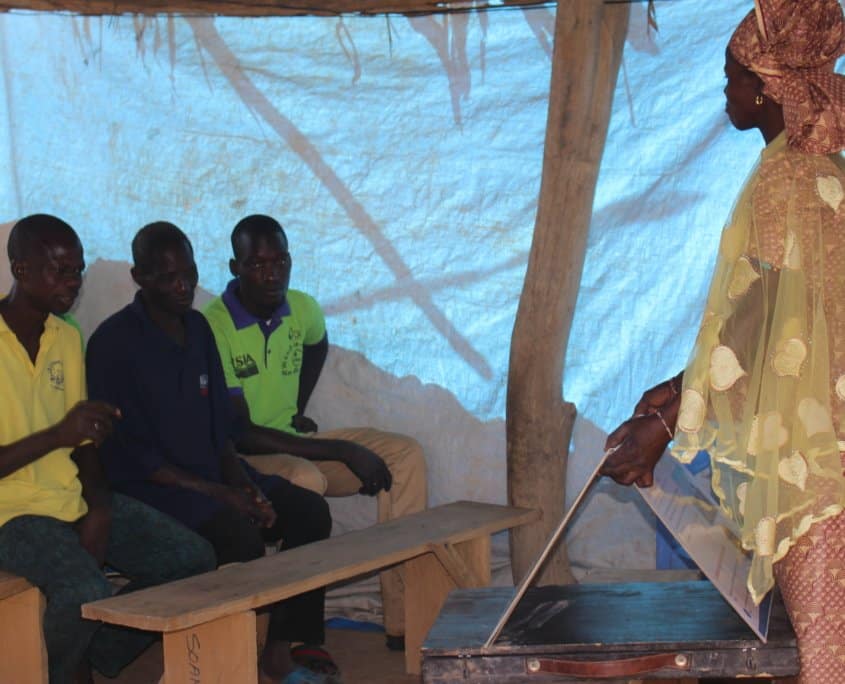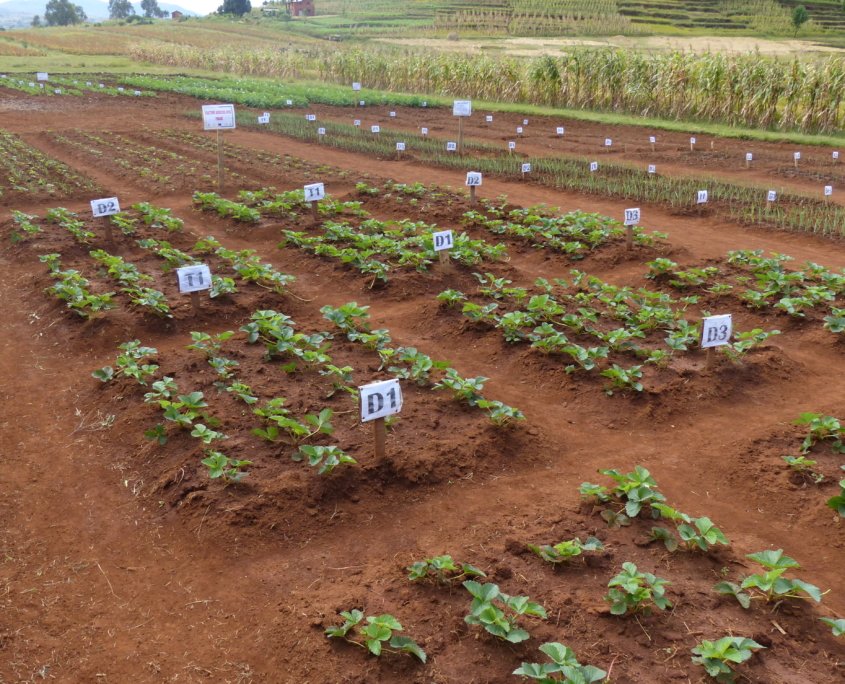In May 2021, the Fert agri-agency organized a webinar on agroecology with its partners and teams in Burkina Faso, Kenya, Côte d’Ivoire and Madagascar. This webinar allowed the Madagascan and Burkinabe teams to share their experience of agroecological practices.
Agroecology is a response to the challenge of adapting to climate change and increasing productivity to meet food demand. Based on the natural processes present in ecosystems, agroecological practices aim, among other things, at a reasoned management of soil fertility and at a good management of water resources, through the development of land parcels, the planting of vegetation cover, trees or hedges.
In Burkina Faso
Burkina Faso is facing problems of soil degradation and reduced productivity. For more than 10 years, three black-eyed pea producers’ organizations in the Centre Nord region (Pissila, Dablo and Pensa) have been carrying out agroecological activities. The approach consists first of all of raising the awareness of the members, in order to identify the priority actions to be taken. This work is based on an illustrated tool made up of 8 pedagogical boards, encouraging debate among the participants. Solutions such as the use of improved seeds, the production of organic manure, the application of the zaï technique, half-moons and stone cordons were discussed during these meetings.
In order to put these resolutions into practice, one of the success factors was to encourage the effective involvement of producers in the design of the illustrated tool, in the facilitation of awareness-raising sessions and in the definition of actions to be carried out via endogenous facilitators who are vectors of dissemination, or in the conduct of farmer field schools and the organization of inter-producer exchange visits.
Despite the difficulty of implementation, these practices have been adopted by a good number of producers in the three black-eyed pea Scoops, who have seen an improvement in their yields.
In Madagascar
Since 2006, Ceffel (Conseil Experimentation Formation in Fruits and Vegetables) has been promoting and disseminating agroecological practices within the Fifata group. Based on the problems observed and discussed in the field with producers, Ceffel carries out experiments, followed by demonstrations, either at the Ceffel center or in the field. The sharing of these good practices is then done through relay farmers who receive training and equipment allowing them to train their peers in turn. Ceffel also promotes the production of bio-inputs (biopesticides, seeds of service plants, earthworms, compost activators, etc.) within the school fields, to then facilitate access to all.
In the field, Ceffel has observed a rapid diffusion of these practices among farmers, who see a direct interest in reducing their dependence on synthetic inputs, whose prices are constantly increasing. Agroecological practices also contribute to improving the resilience of producers, and reduce the risks of losses due to diseases and pests and to climatic disasters.




